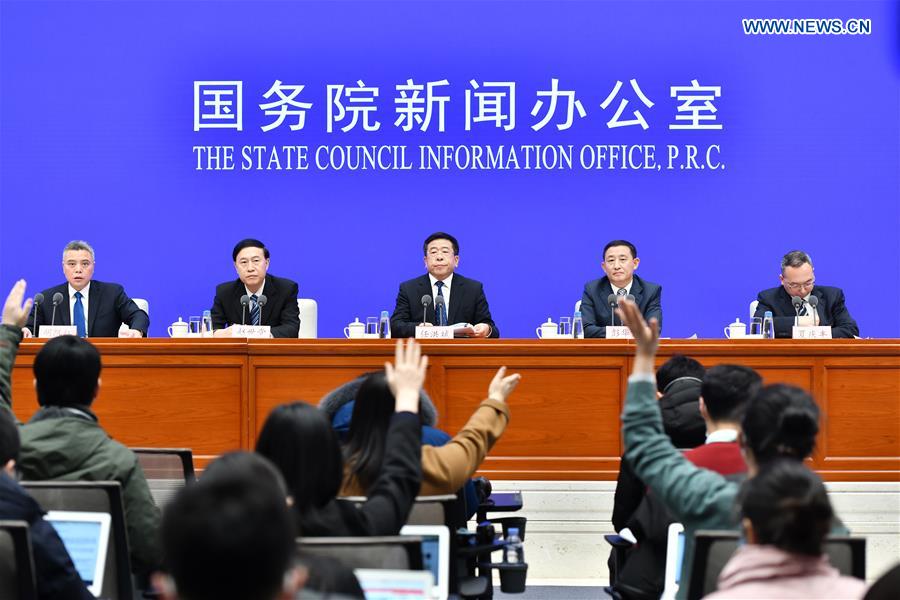
Photo taken on Feb. 18, 2020 shows a press conference held by the State Council Information Office in Beijing, capital of China. China's centrally-administered state-owned enterprises (SOEs) have taken active moves to combat the novel coronavirus disease (COVID-19). They contributed to hospital construction and medical material production and reinforced life and technological support, Ren Hongbin, vice chairman of the State-owned Assets Supervision and Administration Commission of the State Council, told a press conference Tuesday. (Xinhua/Li Xin)
BEIJING, Feb. 18 (Xinhua) -- China's centrally-administered state-owned enterprises (SOEs) have strived to resume production to make up losses caused by unprecedented production suspensions amid the novel coronavirus epidemic.
The State-owned Assets Supervision and Administration Commission of the State Council (SASAC) will stick to this year's goals of production and operation and guide enterprises to resume work in a safe and orderly manner, said Ren Hongbin, vice chairman of the SASAC, at a press conference.
Over 80 percent of central SOEs' production subsidiaries have resumed operation, and more than 95 percent of the companies in the sectors of petroleum and petrochemical, communication, electricity and transport have resumed work, Ren said.
The SASAC encouraged central SOEs to reduce costs and improve efficiency to minimize losses. Over 20 local state-owned assets supervisors have rolled out measures to guide enterprises in a performance review as well as budget and investment management, said Xia Qingfeng with the commission.
Noting the difficulties of small and medium-sized enterprises (SMEs) amid the epidemic outbreak, central SOEs took a slew of measures to support those firms, said Peng Huagang with the SASAC.
SOEs ensured the supply of energy and telecommunications service to SMEs in arrears, added vitality into the industrial chain through work resumption, eased SMEs' pressure on cash flow by cutting or waiving service fees and rent and postponed delivery and payment deadlines for SMEs.
Peng also noted that SOEs with overseas projects strengthened communication with local governments, and counterparties gave better play to the role of local and international staff and encouraged working remotely from China. The companies are urged to enhance health checks and monitoring of outbound employees.



